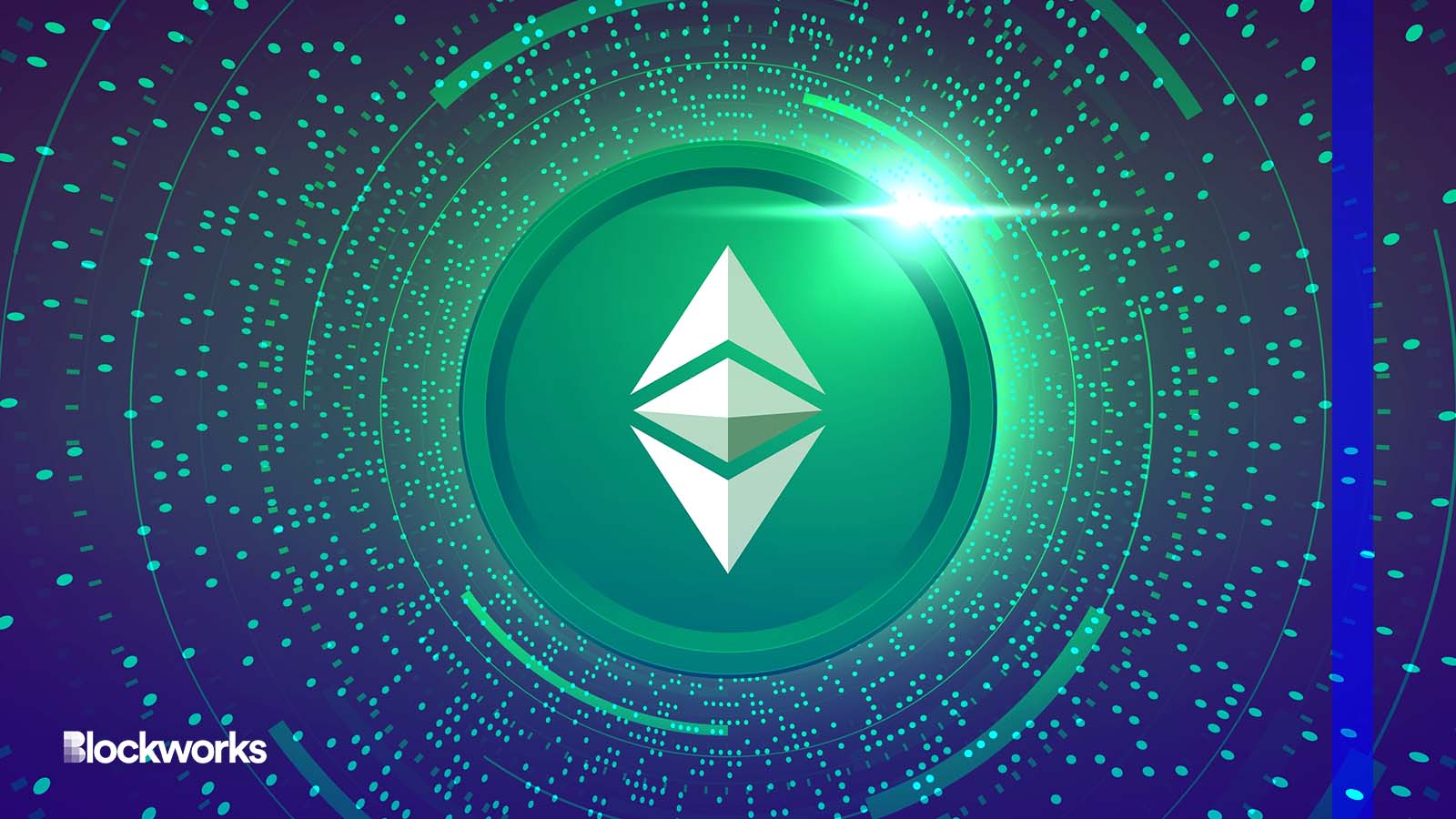Ethereum Hits 500,000 Validator Milestone
The growing number of validators points to “increasing confidence, positive market sentiment, and conviction in the Ethereum ecosystem as a whole,” the chief marketing officer at Blocknative told Blockworks

WindAwake/Shutterstock.com modified by Blockworks
Ethereum has reached another milestone as the number of validators on its network now exceeds 500,000, data from BeaconScan shows.
Validators are essential in guaranteeing the integrity and security of the Ethereum network. They operate by consensus to process transactions on the blockchain by verifying that the conditions specified in each transaction’s smart contract code have been met.
A validator must deposit 32 ETH (roughly $45,000) to run a dedicated staking node on the proof-of-stake blockchain. Today, staked funds are locked in the network, and while they accrue staking rewards from Ethereum’s inflation, validators are unable to access the funds until after the Shanghai upgrade, expected to happen in March, which will allow withdrawals of staked ether for the first time.
The increase in number of active validators is a positive sign for the Ethereum ecosystem, John Jefferies, chief marketing officer at Blocknative, a real-time Web3 infrastructure company, told Blockworks.
“The network is on the verge of reaching 500,000 active validators, pointing to increasing confidence, positive market sentiment, and conviction in the Ethereum ecosystem as a whole,” Jefferies said.
Jefferies predicted that once the Shanghai upgrade is completed and staked ETH becomes accessible, it is likely that there will be a more liquid and free-flowing ecosystem.
“It wouldn’t be surprising to see even more people spin up validators after Shanghai as they gain the peace of mind knowing they can unstake their ETH more fluidly,” he said.
 Source: BeaconScan
Source: BeaconScan
Ethereum recently saw its total value stake reach 16 million ETH (over $22 billion), implying that it would be extremely difficult and costly to attack the network’s consensus, Ben Edgington, a lead product owner at ConsenSys, told Blockworks.
“We can consider the security of the Ethereum network on two axes. One is the total value staked,” Edgington said. “The other is the degree of decentralization.”
Although decentralization is a little more difficult to analyze, as many validators are run by the same entities, reports show that they are spread across at least 11,400 physical nodes in 80 countries.
“[This] is a considerable degree of decentralization, and much more distributed than we had under proof-of-work,” prior to the Merge, Edgington said. “Many of these nodes are run by home stakers such as myself, underpinning the protocol with a huge degree of resilience and diversity.”
Updated Jan. 12, 2022 at 7:43 pm ET: Headline and first paragraph changed to reflect that Ethereum now has more than 500,000 validators.
Get the news in your inbox. Explore Blockworks newsletters:
- The Breakdown: Decoding crypto and the markets. Daily.
- 0xResearch: Alpha in your inbox. Think like an analyst.






